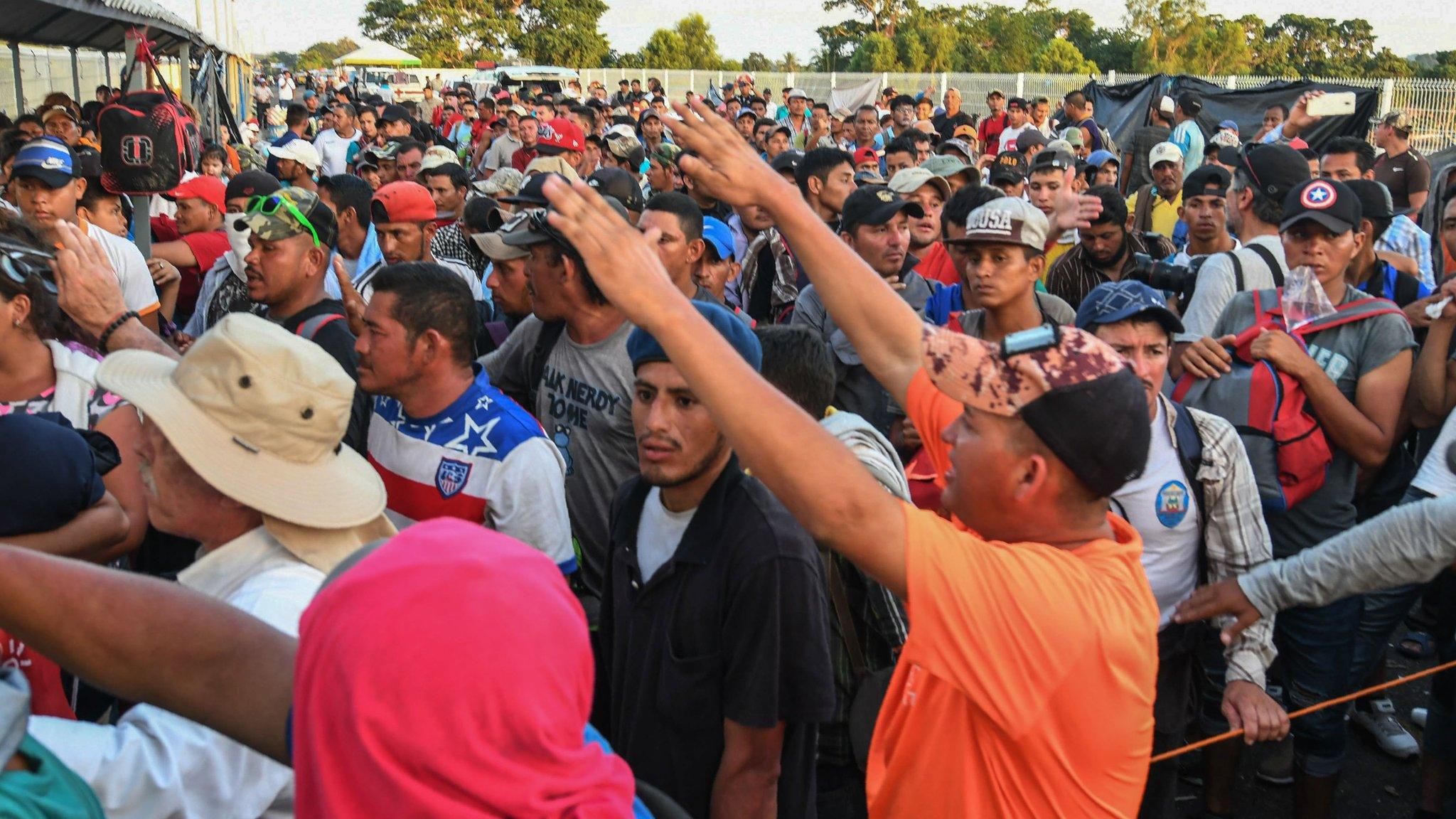US to 'deploy 800 troops to border' ahead of caravan
- Published
Trump and the facts about the migrant caravan
Defence Secretary James Mattis is expected to deploy around 800 troops to the US-Mexico border to stop a migrant caravan, US media say.
The soldiers would assist with fencing and support at key points along the southern border, administration officials tell CNN.
The caravan of thousands of Central American migrants is making its way toward the US through Mexico.
President Donald Trump said on Thursday he was "bringing out the military".
"I am bringing out the military for this National Emergency," Mr Trump said of the migrant caravan in a tweet, hinting of an upcoming deployment. "They will be stopped!"
Secretary Mattis' order is in response to a request from President Trump, according to the Associated Press.
Mr Trump first threatened such action last week, saying he would use the military to completely close the US-Mexico border. He also threatened cutting aid to Guatemala, El Salvador and Honduras.
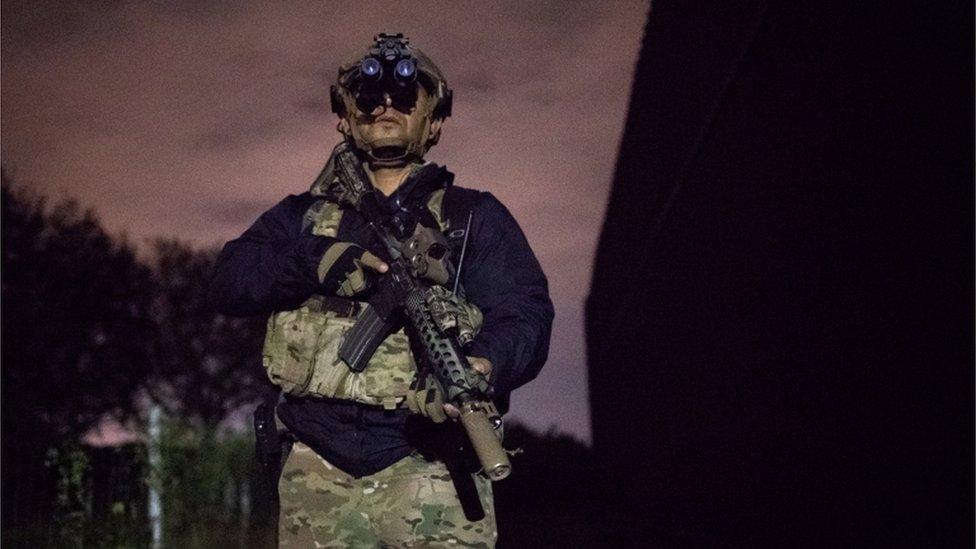
A US Border Patrol Tactical Unit agent guards the US side of the border wall with Mexico in Brownsville, Texas
It remains unclear whether these 800 troops will be National Guard or active military forces, but the Washington Post reported an official, external saying some active Army personnel would be deployed.
There are already thousands of National Guard troops supporting border officials - 2,100 unarmed troops are at the border presently - but 4,000 have been approved for deployment by the Pentagon.
Is sending troops a first?
The president has called sending troops to the Mexico border a "big step", but both his predecessors also dispatched the National Guard there.
President Barack Obama sent some 1,200 soldiers to guard the boundary, while President George W Bush deployed about 6,000 troops to help Border Patrol in what was called Operation Jump Start.
Both deployments lasted for around a year.
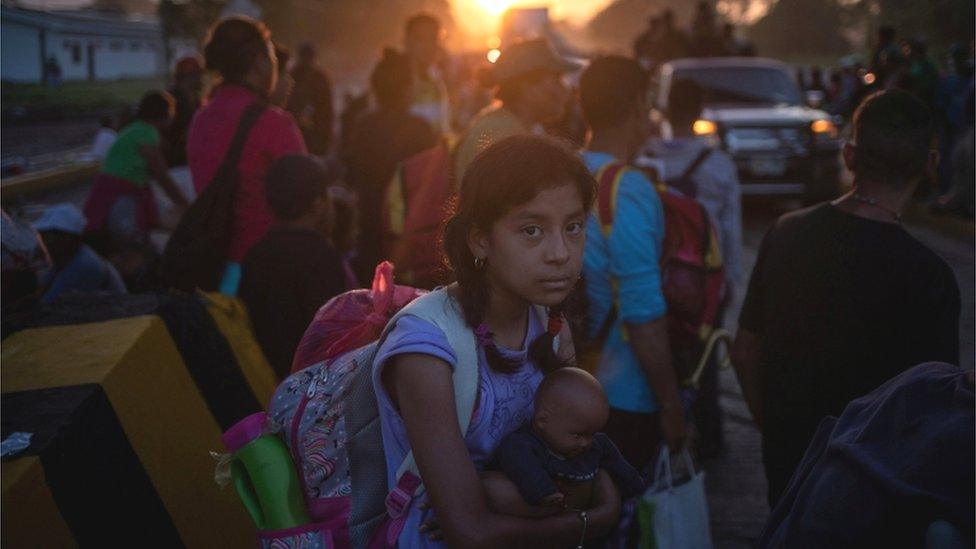
It will still take weeks for the migrants, travelling mostly on foot, to reach the US
Where is the caravan now?
The caravan is presently near Mapastepec, Chiapas state, Mexico. They are reportedly heading towards the town of Pijijiapan, but it will still take weeks for them to reach the US border.
A spokesman for the United Nations said more than 7,000 people had joined the migrant caravan as of 22 October, citing estimates from the International Organisation for Migration.
But the group has split up, which makes it difficult to determine the exact number.
The migrants say they are fleeing persecution, poverty and violence in their home countries of Guatemala, Honduras and El Salvador.
Can they migrate legally?
On Thursday, Mr Trump once again urged the migrants to stay away, tweeting: "To those in the Caravan, turn around, we are not letting people into the United States illegally."
Allow X content?
This article contains content provided by X. We ask for your permission before anything is loaded, as they may be using cookies and other technologies. You may want to read X’s cookie policy, external and privacy policy, external before accepting. To view this content choose ‘accept and continue’.
Many of the migrants say they plan to seek asylum in the US.
There is a legal obligation under international law to hear asylum claims from migrants who have arrived in the US if they say they fear violence in their home countries.
But in June, Attorney General Jeff Sessions announced that victims of domestic abuse and gang violence would no longer generally qualify for asylum in the US.
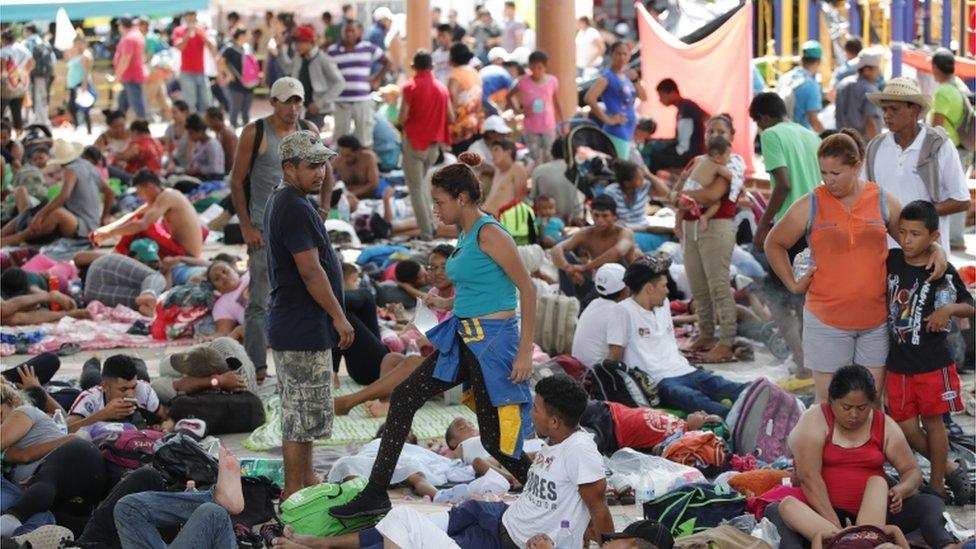
More than 7,000 people are part of the caravan, according to a recent estimate released by the United Nations
Those seeking asylum must be fleeing due to a serious fear of persecution in their home country. Under international law, these are considered refugees.
If an asylum seeker enters the US illegally, they are still entitled to a hearing of their claim.
Economic migrants are those seeking a better quality of life - and even if they are fleeing devastating poverty, they are not considered refugees and do not have the same protections, external.
The mid-term elections are less than two weeks away and critics say Mr Trump has used the threat of illegal immigration to fire up his supporters.
In addition to ramping up his harsh rhetoric against migrants at rallies in recent weeks, the president has also made statements painting them as criminals without offering any evidence.
Mr Trump's increased anger at Central American migrants comes at a time when many Latinos in the US are worried about their place in the nation, according to a new Pew Research Center study, external.
Half of all Latinos polled said their situation has worsened in the past year and 55% fear someone close to them could be deported.
- Published23 October 2018
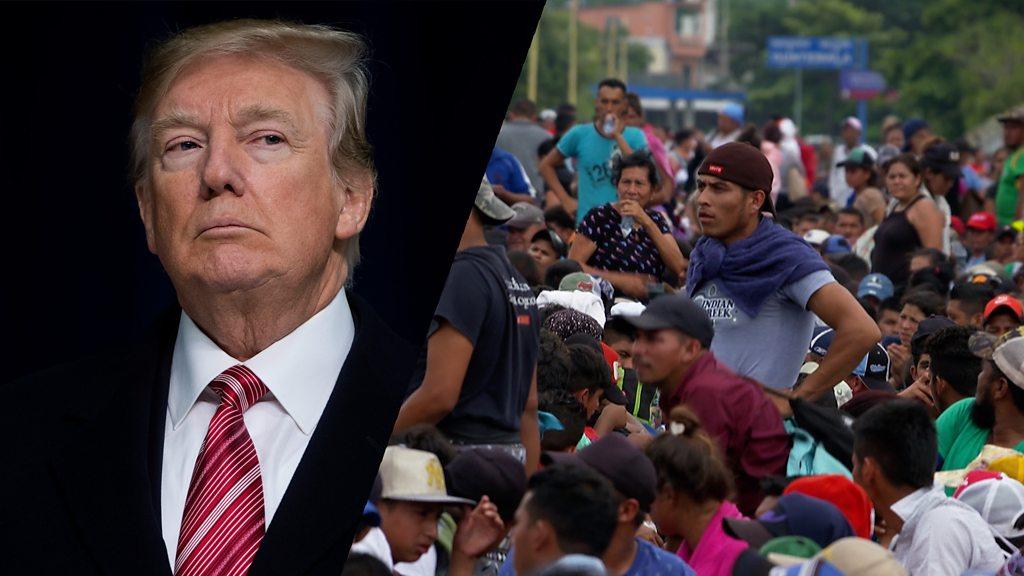
- Published22 October 2018
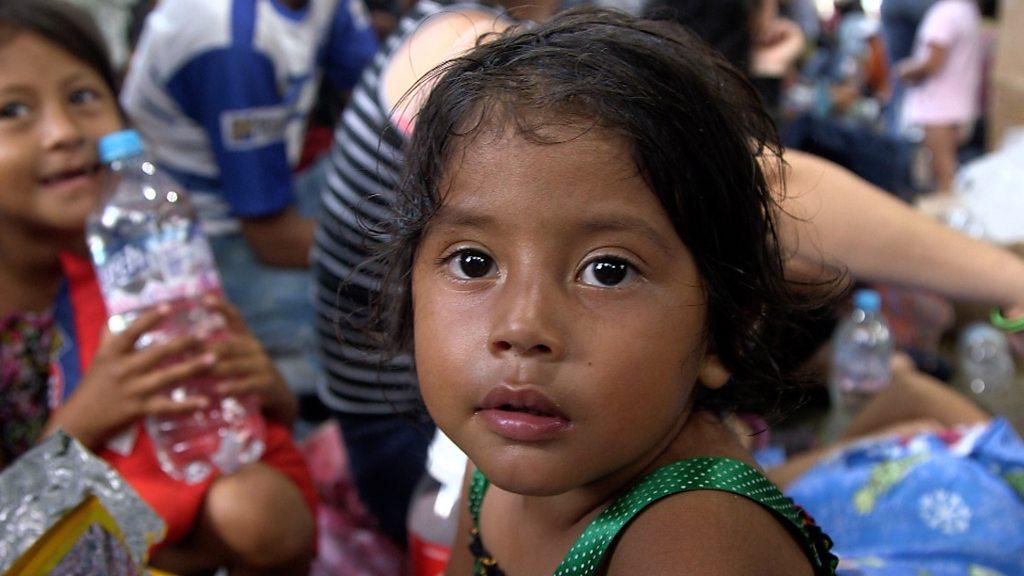
- Published24 October 2018
